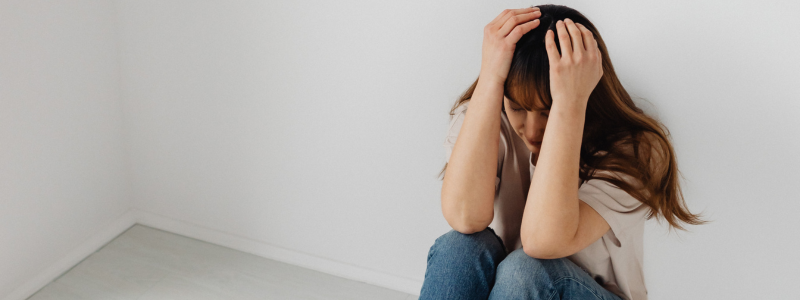
Head of Online Medical Content

Audiology Expert

Do I Need a Hearing Aid?
What level of hearing loss needs a hearing aid?
Overview | Signs you might need a hearing aid | Who can benefit from hearing aids? | Are they right for me? | Do I need two hearing aids? | Why should I get my hearing checked? | Conclusion
Last Hearing Aid UK Update:
Overview
Having trouble understanding conversations, especially in noisy places, could be a clear sign that you need hearing aids.
Other signals include frequently asking people to repeat themselves, cranking up the volume on your devices, and experiencing persistent ringing in your ears (tinnitus).
You might also notice withdrawing from social situations or feeling exhausted from trying to hear clearly, both of which can point to hearing loss. Hearing aids are historically successful at treating hearing loss, yet surprisingly few people who need them actually use them.
According to recent research, approximately 18 million people in the UK are affected by hearing loss, which is more than a quarter of the population. However, only 2 million people in the UK use hearing aids, despite the significant number of those with hearing loss(Source: RNID).
Perhaps it’s the stigma that’s holding people back, but the reality is this: hearing aids can hugely improve your quality of life. From clearer conversations to reduced cognitive strain, the benefits far outweigh the stigma and presumed downsides.
One of the questions we hear most often from our patients is: “When should I get a hearing aid?” If you’re starting to wonder whether you’re one of the 5 million who could benefit from one, this article is for you.
Common signs you may need a hearing aid
You hear a ringing in your ears
Persistent ringing (or buzzing) in your ears, known as tinnitus, affects up to 15% of the population. It’s often a sign of underlying hearing damage.
When sound-detecting cells in the ear are damaged or die, your brain compensates by generating phantom noise. If this sounds familiar, it might be time to get your hearing checked.
Related reading: Hearing aids for tinnitus
You can hear voices, but the words don’t quite make sense
This is often a subtle and easily missed early indicator of mild hearing loss. You hear sounds, but it feels like people are mumbling, speaking too quickly, or like the conversation’s happening from across the room.
If you frequently ask others to repeat themselves, a hearing aid could help restore clarity.
You've had a head injury
Injuries to the head, whether from accidents, falls, or during sports, can disrupt the delicate pathways that carry sound signals from your ears to your brain.
You struggle to work out where sounds are coming from
Your brain uses tiny differences in how sound reaches each ear to pinpoint direction. If that process is off, it may signal hearing loss. If you often find yourself looking the wrong way when someone calls your name, that’s usually a red flag.
But do I really need a hearing aid?
It’s a common misconception that hearing aids are just for the elderly or profoundly deaf. In fact, they can help anyone with even a mild hearing loss.
It's true that they’re more common in older adults; 70% of over-70s have some level of hearing loss. However, around 15% of young people aged 6–19 already have some level of hearing loss, often due to things like loud music through headphones.
Who can benefit from hearing aids?
You might need a hearing aid if you fall into any of these groups:
Diagnosed with hearing loss:
- Ranging from mild to severe.
- Any type of hearing loss, such as conductive, sensorineural, or mixed.
Hearing loss at any age:
- Children and teens with congenital or acquired loss.
- Adults with hearing challenges at work or socially.
- Older adults with age-related decline.
Specific needs:
- Tinnitus sufferers.
- Those concerned about memory or cognitive issues.
Struggles with everyday conversations:
- Difficulties following conversations at work, in restaurants, or with loved ones.
- Feeling isolated due to hearing challenges.
Unfortunately, there's still a stigma attached to hearing loss and hearing aids. A hearing aid doesn’t make you “old”; it simply means you’re taking care of your hearing health. Today's hearing aids are sleeker, more discreet, and more advanced than they used to be.
Some are nearly invisible, sitting inside the ear, and adapt to different environments automatically, and some include artificial intelligence (AI) to boost your listening experience when you need it the most.
Will hearing aids work for me?
In most cases, yes. About 95% of people with hearing loss see a significant improvement once fitted with the right hearing aid.
But hearing aids need to be properly fitted and programmed by a professional audiologist - success depends on an accurate diagnosis and personalised treatment.
That’s why a hearing test is essential, and at Hearing Aid UK, we assess your hearing with expert technology to determine the exact nature of your hearing loss and recommend the best solution.
Related reading: Do hearing aids work for everyone?
One hearing aid or two?
If your hearing loss is in one ear only (perhaps due to injury or infection), a single hearing aid may be enough. Using just one hearing aid in this case may improve hearing in one ear, but your brain will still struggle to interpret sound direction and clarity.
For more balanced, clearer hearing, two hearing aids are often the best and here's why...
Most people experience bilateral hearing loss, meaning it affects both ears. This is especially common with age-related hearing loss or conditions that impact the auditory system more broadly.
In these cases, using just one hearing aid can leave your brain struggling to accurately process sound.
This is because your brain relies on input from both ears to localise sounds, filter out background noise, and maintain natural hearing clarity.
Wearing only one hearing aid when both ears are affected can lead to an imbalance that makes it harder to focus on conversations, follow speech in noisy environments, or detect where sounds are coming from.
Wearing two hearing aids helps your ears to work together, providing a more natural, wider hearing experience. You’ll start to notice better clarity, improved spatial awareness, and less strain during conversations.
Think of it like wearing glasses, if both eyes need correction, you wouldn’t just use one lens - your ears work the same way.
If you’re unsure whether one or two hearing aids are right for you, a hearing test with a qualified audiologist will help determine the best approach based on your own needs.
Related reading: Do I really need two hearing aids?
Why treating hearing loss matters
It’s important to understand the risks of ignoring hearing loss. Studies now show a strong link between hearing loss and cognitive decline, including dementia.
People with even mild hearing loss are said to have double the risk of developing dementia. For severe hearing loss, that risk increases by five times.
One theory is cognitive load, and struggling to hear puts your brain under constant strain. It diverts mental energy from other tasks, which may speed up cognitive fatigue and decline.
Social isolation is another concern, and many people with hearing loss withdraw from social settings out of frustration or embarrassment.
This loneliness is not only damaging to mental health but also contributes to further cognitive decline. Hearing aids can help prevent this, as they make conversations easier, improve focus, and give you back the confidence to connect with others.
Take the first step towards better hearing
If you're struggling with any of the symptoms we’ve mentioned, or simply wondering if your hearing’s what it used to be, it might be time to book a hearing test.
At Hearing Aid UK, we have private clinics nationwide, offering professional support, diagnostics, and tailored treatment plans to help you hear clearly again. We also offer home visits at no extra cost.
Why Choose Us?
- FREE Hearing Tests
- Best Hearing Aids and Prices
- FREE Aftercare for Life
- FREE Home Visits
- 200+ Local Audiologists
- 60 Day Money Back Guarantee
Who do I need a hearing aid?
Quick Takeaways
- Common signs of hearing loss include muffled sounds, trouble understanding speech, ringing in the ears, and difficulty locating where sounds come from.
- Hearing aids are for everyone, not just older adults. Children, teenagers, and working-age adults all benefit from them.
- Hearing aids can help prevent cognitive decline, including conditions like dementia, by reducing the mental strain caused by untreated hearing loss.
Other hearing loss awareness articles you might like...
 Hearing aid stigma
Hearing aid stigma  The impact of diet on your hearing
The impact of diet on your hearing  How to tell if hearing loss is permanent or temporary
How to tell if hearing loss is permanent or temporary Our specialist service includes:
Do not spend hundreds of pounds without getting a second opinion from us.
Please call us on 0800 567 7621
 Not only are the prices great, but the service is fantastic! Many thanks to your team.
Not only are the prices great, but the service is fantastic! Many thanks to your team.What's included in our hearing aid prices?
Other pages you might find useful...
FAQs
In general, any audiologist will always recommend to you the hearing aid model that best suits your needs. Here is a useful checklist to make sure that is the case.
- Audiologist's level of knowledge: The audiologist you have seen will hopefully have a wide knowledge of all available hearing aids; however, some will only be familiar with a small number of brands and, therefore, may not really be in a position to know which model is the best for you. It is OK to challenge their recommendation and ask them to justify why this particular brand is the one for you.
- Do research: Read about the hearing aid that was recommended. Does it seem like it will suit your lifestyle? Does it have more or fewer features than you need?
- Be aware of sales targets: Many high street retailers have specific tie-ins to a particular manufacturer/brand. The hearing aid they have suggested may still be the correct one for you, but do your research so that you know why they might have recommended it.
If you have significant hearing loss in both ears, you should be wearing two hearing aids. Here are the audiological reasons why:
Localisation: The brain decodes information from both ears and compares and contrasts them. By analysing the minuscule time delays as well as the difference in the loudness of each sound reaching the ears, the person is able to accurately locate a sound source.
Simply put, if you have better hearing on one side than the other, you can't accurately tell what direction sounds are coming from.
Less amplification is required: A phenomenon known as “binaural summation” means that the hearing aids can be set at a lower and more natural volume setting than if you wore only one hearing aid.
Head shadow effect: High frequencies, the part of your hearing that gives clarity and meaning to speech sounds, cannot bend around your head. Only low frequencies can. Therefore, if someone is talking on your unaided side, you are likely to hear that they are speaking, but be unable to tell what they have said.
Noise reduction: The brain has its own built-in noise reduction, which is only really effective when it is receiving information from both ears. If only one ear is aided, even with the best hearing aid in the world, it will be difficult for you to hear in background noise as your brain is trying to retain all of the sounds (including background noise) rather than filtering them out.
Sound quality: We are designed to hear in stereo. Only hearing from one side sounds a lot less natural to us.
Fancy some further reading on this topic? You can read about why two hearing aids are better than one in our article, hearing aids for Both Ears, here
For most people, the main benefit of a rechargeable hearing aid is simple convenience. We are used to plugging in our phones and other devices overnight for them to charge up. Here are some other pros and cons:
For anybody with poor dexterity or issues with their fingers, having a rechargeable aid makes a huge difference, as normal hearing aid batteries are quite small and some people find them fiddly to change.
One downside is that if you forget to charge your hearing aid, then it is a problem that can't be instantly fixed. For most, a 30-minute charge will get you at least two or three hours of hearing, but if you are the type of person who is likely to forget to plug them in regularly, then you're probably better off with standard batteries.
Rechargeable aids are also a little bit bigger and are only available in Behind-the-Ear models.
Finally, just like with a mobile phone, the amount of charge you get on day one is not going to be the same as you get a few years down the line. Be sure to ask what the policy is with the manufacturer's warranty when it comes to replacing the battery.
For most people, the answer is yes. But it's never that simple.
The majority of hearing problems affect the high frequencies a lot more than the low ones. Therefore, open fitting hearing aids sound a lot more natural and ones that block your ears up can make your own voice sound like you are talking with your head in a bucket. Therefore, in-ear aids tend to be less natural.
However, the true answer is we can't tell until we have had a look in your ears to assess the size of your ear canal, and until we have tested your hearing to see which frequencies are being affected.
People with wider ear canals tend to have more flexibility, also there are open fitting modular CIC hearing aids now that do not block your ears.
There is also the age-old rule to consider, that a hearing aid will not help you if it's sat in the drawer gathering dust. If the only hearing aid you would be happy wearing is one that people can't see, then that's what you should get.
Most people can adapt to any type of hearing aid, as long as they know what to expect. Have an honest conversation with your audiologist as to what your needs are.
Generally speaking, six or more. Unless it's none at all. The number of channels a hearing aid has is often a simplistic way an audiologist will use to explain why one hearing aid is better than another, but channels are complex, and it is really not that straightforward. Here are some reasons why:
Hearing aids amplify sounds of different frequencies by different amounts. Most people have lost more high frequencies than low, and therefore need more amplification in the high frequencies. The range of sounds you hear is split into frequency bands or channels, and the hearing aids are set to provide the right amount of hearing at each frequency level.
Less than six channels, and this cannot be done with much accuracy, so six is the magic number. However, a six-channel aid is typically very basic with few other features and is suitable only for hearing a single speaker in a quiet room. The number of channels is not what you should be looking at; it's more the rest of the technology that comes with them.
As a final note, different manufacturers have different approaches. One method is not necessarily better than any other. For example, some manufacturers have as many as 64 channels in their top aids. Most tend to have between 17 and 20. One manufacturer has no channels at all.
Manufacturer's warranties typically last between 2-5 years, depending on the brand and model, and cover defects in materials and workmanship. This includes repairs for component failures, electronic malfunctions, and manufacturing defects, but excludes damage from misuse, accidents, or normal wear. Most manufacturers also include loss and damage insurance for the first year.
We handle all warranty claims on your behalf, liaising with manufacturers and ensuring you get replacement devices quickly when needed. This comprehensive warranty coverage, combined with our lifetime aftercare, gives you complete peace of mind.
Our hearing tests are completely free, whether at our clinics or in your home. Unlike other providers who charge £30-£100 for home visits, we believe hearing healthcare should be accessible without financial barriers. Our comprehensive assessments include examination by a registered audiologist, audiogram results, and personalised recommendations.
All testing, future adjustments, and ongoing support are included at no extra cost. While NHS tests are also free, typical 6-week waiting periods often lead people to seek immediate private testing. We provide prompt, professional assessments that fit your schedule and budget.
Yes, we offer completely free home visits throughout the UK, and this service is included in our prices with no additional charges. Home visits are particularly valuable for people with mobility issues, busy schedules, or those who simply prefer the comfort and convenience of their own environment.
Our audiologists can conduct full hearing tests, fit hearing aids, and provide ongoing support in your home. This service sets us apart from many providers who either don't offer home visits or charge extra for them.
We can offer prices up to 40% lower than high street retailers because of our business model. As a network of 200+ independent audiologists, we don't have the massive overheads of large retail chains - no expensive high street premises, no sales targets pushing audiologists to sell the most expensive options, and no costly marketing campaigns.
However, we maintain the same buying power as the big chains because we purchase on behalf of our entire nationwide network. This means you get access to the same premium hearing aids with professional service, but at genuinely competitive prices.
We offer a comprehensive 60-day money-back guarantee, which gives you twice the industry standard time to properly assess whether your hearing aids are right for you. This extended period recognises that adjusting to hearing aids takes time, and your brain needs several weeks to adapt to the amplified sounds.
Unlike many providers who offer just 30 days, we believe 60 days gives you the confidence to test your hearing aids in all the situations that matter to you - from quiet conversations at home to busy restaurants and outdoor activities.
Ask the Experts
6 Morton Lane
Walkwood
Redditch
Worcestershire
B97 5QA
Latest Launch
When we refer to a product as 'Latest Launch', we mean it is the latest to be released on the market.
New
When we refer to a product as 'New', we mean that the product is the newest hearing aid model on the market.
When we refer to a product as 'Superseded', we mean that there is a newer range available which replaces and improves on this product.
Older Model
When we refer to a product as an 'Older Model', we mean that it is has been superseded by at least two more recent hearing aid ranges.
